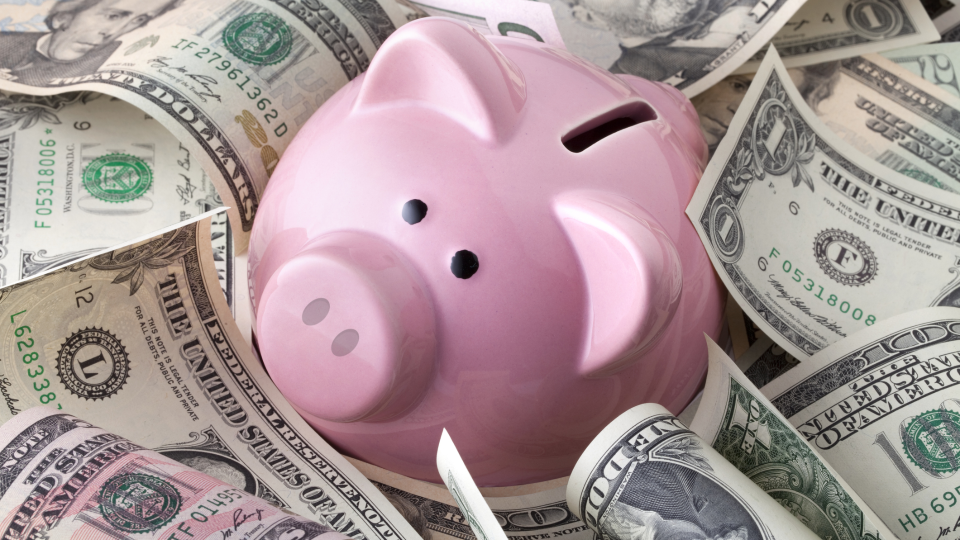8 Steps You Should Take After Getting Paid, According to Financial Influencer Vincent Chan

Growing your wealth begins with your paychecks. If you don’t have a solid strategy for where you’re putting your money after you get it, you’ll have difficulty maximizing your finances. Personal finance expert Vincent Chan laid out exactly what he does after he gets a paycheck. In an Instagram reel, he explains his steps to make sure his money goes to wealth building.
Try This: What the Upper Middle Class Make in Different US Cities
Find Out: 6 Subtly Genius Moves All Wealthy People Make With Their Money
Earning passive income doesn't need to be difficult. You can start this week.
Put Money Into Your Emergency Fund
Setting up and contributing to an emergency fund is the first step Chan advised to take after receiving your paycheck. An emergency fund protects you from unexpected situations like losing your job, medical emergencies or your car breaking down. Setting aside savings for these situations will give you peace of mind and reduce the likelihood of going into debt to cover unforeseen expenses.
Chan recommended setting money aside until you’ve had at least three to six months in expenses. For example, if you usually spend $3,000 per month, you’ll want to save up until you’ve got $18,000 available in case of financial hardships.
Be Aware: How I Went From Middle Class to Upper Middle Class
Pay Off High-Interest Debts
After setting aside money for emergency savings, you should divert some of your paychecks to eliminate high-interest debts. These debts generally accrue 7% interest or more, such as credit cards or personal loans.
To effectively deal with these debts, Chan endorsed the avalanche method of debt payment. For this strategy, you pay the debt with the highest interest first. While you may need to pay the minimum amount on multiple debts, putting extra money toward the principal amount with the highest interest will remove it faster. Once you’ve finished paying that debt, move on to the one with the next highest interest. By settling the debts with higher interest first, you’ll pay less overall interest.
Contribute To Your 401(k)
A 401(k) is a retirement plan that allows you to contribute pre-taxed money straight from your paycheck. This money can grow in your account through investments and you won’t pay any tax until you withdraw it when you retire, according to the Internal Revenue Service (IRS).
In many instances, employers will match your contribution up to a point. Chan explained that this is essentially free money and that you should maximize your 401(k) contributions to avoid missing out on the employer match. Additionally, putting a larger portion of your paycheck into your 401(k) reduces the tax you must pay on your monthly income.
Max Out Your HSA
Another account you should fund from each paycheck is your Health Savings Account (HSA).
HSAs provide triple tax benefits. Like a 401(k), your contributions are made with pre-tax dollars, reducing your annual taxable income. The funds in your HSA can grow over time without incurring tax penalties. And finally, you can withdraw tax-free funds for qualified medical expenses according to HSA Central. Maxing out your HSA will help protect you against future health expenses.
Max Out Your Roth IRA
A Roth Individual Retirement Account (IRA) is another account that provides tax advantages for retirement savings. Unlike a 401(k), contributions to a Roth IRA are made with after-tax money. You can invest and grow the funds in your account over time and when you withdraw them in retirement, you won’t need to pay taxes. Roth IRAs are a great way to grow your wealth tax-free, but you can only contribute $7,000 per year if you’re under 50 and $8,000 per year if you’re older than 50, according to the IRS.
Max Out Your 401(k)
If you have only paid into your 401(k) to take advantage of the employer match, you should consider maxing out the rest of your contributions. The extra money you put into your 401(k) will still benefit from the account tax advantages and compounding interest on investments. Maxing out your 401(k) provides extra opportunities to live comfortably in retirement.
Invest With a Brokerage Account
After maxing out both your Roth IRA and 401(k), set some money aside for your personal brokerage account. Chan took a somewhat conservative approach to these investments and puts his money into low-cost mutual funds that follow S&P 500 index. Two of the funds that he said he uses are FXAIX and VOO.
Pay Off Your Remaining Debt
Finally, you can put any extra money toward low-interest debt. It’s best to put extra money toward high-interest debt to eliminate it before paying down debts under 7% interest. When choosing which loans to pay off, you can apply the avalanche method to low-interest debts. Another payment strategy is the snowball method. For this method, you target the smallest debt first. Once it’s gone, you target the next smallest. This will give you a sense of momentum and propel you to get out of debt faster.
More From GOBankingRates
9 Moves For Building Lasting Wealth: What Smart Americans Are Doing Right
7 Best New Items To Buy at Dollar Tree Ahead of Halloween 2024
The Average Consumer Has $6,329 in Credit Card Debt. Here's One Smart Way to Get Out
This article originally appeared on GOBankingRates.com: 8 Steps You Should Take After Getting Paid, According to Financial Influencer Vincent Chan